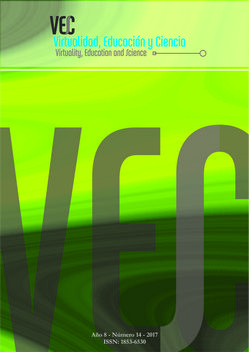The teaching-learning process in ubiquitous and university contexts. Three case studies
DOI:
https://doi.org/10.60020/1853-6530.v8.n14.17341Palavras-chave:
Informal learning, social networks, gamification, foreign language, adaptabilityResumo
In this article, we aim to identify the components of the learning-teaching process for foreign languages that better adapt themselves to different teaching environments (face-to-face and online) with the objective of observing how the optimization of different methodological strategies can result in the optimization of learning. Likewise, we will identify some of the learning environmental constructions that have been carried out in a completely "online" environment (Universidade Aberta) as well as in a face-to-face but digitally enriched context (Universidade Católica Portuguesa).In this way, we propose a methodological design based on the adaptability of both the cognitive components of the students and the context in which learning takes place. It is committed to the diversification not only of contents, but also of the different ways of understanding learning.Downloads
Publicado
2017-06-26
Edição
Seção
Innovación y experiencias
Licença
Se permite la generación de obras derivadas siempre que no se haga con fines comerciales. Tampoco se puede utilizar la obra original con fines comerciales.
Como Citar
The teaching-learning process in ubiquitous and university contexts. Three case studies. (2017). Virtualidad, Educación Y Ciencia, 8(14), 136-152. https://doi.org/10.60020/1853-6530.v8.n14.17341


